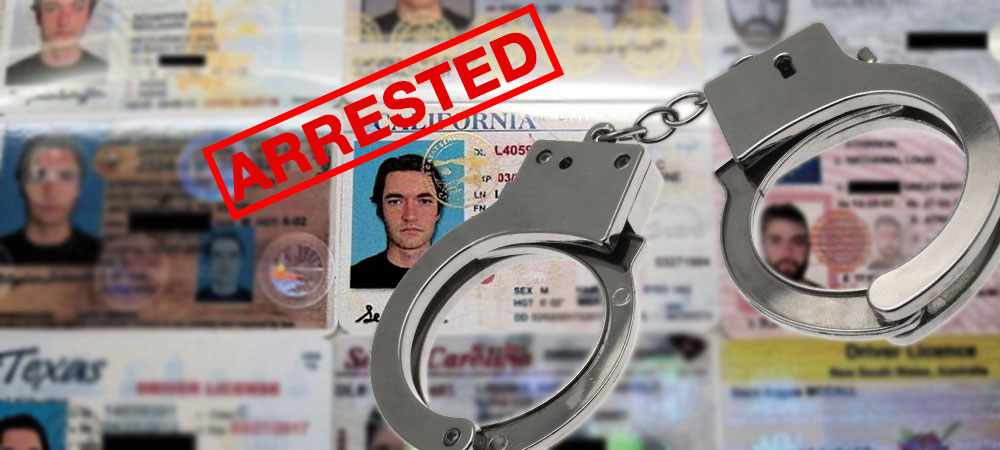
Manhattan U.S. Attorney Announces Extradition Of Senior Adviser To The Operator Of The “Silk Road” Website
Federal prosecutors allege Roger Thomas Clark was a key figure in the development of Silk Road and advised Ross Ulbricht on all aspects of the criminal enterprise.
On June 15, 2018 the U.S. Attorney’s Office for the Southern District of New York announced in a press release that Roger Thomas Clark has been extradited to the United States and charged with a number of offenses relating to his alleged association with Ross Ulbricht. Ross Ulbricht is known as the creator and operator of the first anonymous free market “Silk Road”.
Silk Road
Mr. Ulbricht created Silk Road in January 2011. He owned and operated the underground website until it was shut down by law enforcement authorities in October 2013. Silk Road emerged as the most sophisticated and extensive criminal marketplace on the Internet at the time, serving as a sprawling black-market bazaar where unlawful goods and services, including cannabis and other illegal drugs, were bought and sold regularly by the site’s users. While in operation, Silk Road was used by thousands of drug dealers and other unlawful vendors to distribute hundreds of kilograms of illegal drugs and other unlawful goods and services to well over 100,000 buyers, and to launder hundreds of millions of dollars deriving from these unlawful transactions.
Silk Road enabled its users to buy and sell drugs and other illegal goods and services anonymously and outside the reach of law enforcement. Silk Road was operated on what is known as “The Onion Router,” or “TOR” network, a special network of computers on the Internet, distributed around the world, designed to conceal the true IP addresses of the computers on the network and thereby the identities of the network’s users. Silk Road also included a Bitcoin-based payment system that served to facilitate the illegal commerce conducted on the site, including by concealing the identities and locations of the users transmitting and receiving funds through the site.
Clark Indictment
Manhattan U.S. Attorney Geoffrey S. Berman stated “Silk Road was a secret online marketplace for illegal drugs, hacking services, and a whole host of other criminal activity. Mr. Clark allegedly served as a trusted confidante to Mr. Ulbricht, advising him on all aspects of this illegal business, including how to maximize profits and use threats of violence to thwart law enforcement”.
Mr. Clark is charged with narcotics trafficking conspiracy; narcotics trafficking; distributing narcotics by means of the internet; conspiracy to commit, and aid and abet, a computer hacking conspiracy; conspiracy to traffic in fraudulent identification documents; and money laundering conspiracy.
If convicted, Mr. Clark age 56 and a Canadian citizen faces a mandatory minimum sentence of 10 years in prison and a maximum sentence of life in prison, among other charges. Mr. Clark was reportedly paid “at least hundreds of thousands of dollars for his role in operating Silk Road.” You can be sure that this was not reported to IRS and will then have to face dealing with the IRS.
Homeland Security Investigations special agent-in-charge, Angel M. Melendez, stated that “The extradition of this man today should be a reminder to those who think they can hide within the confines of the dark web, that you are never out of reach of the long arm of the law. These investigations are important in combating the illicit drug market and we will continue to work with our law enforcement partners to fight this fight”.
Charges Could Be Expanded To Include Tax Crimes
For individuals nabbed by the Federal Government, it is not surprising that the IRS gets involved and they are also charged with tax crimes.
Failure to report all the money you make is a main reason folks end up facing an IRS auditor. Carelessness on your tax return might get you whacked with a 20% penalty. But that’s nothing compared to the 75% civil penalty for willful tax fraud and possibly facing criminal charges of tax evasion that if convicted could land you in jail.
Criminal Fraud – The law defines that any person who willfully attempts in any manner to evade or defeat any tax under the Internal Revenue Code or the payment thereof is, in addition to other penalties provided by law, guilty of a felony and, upon conviction thereof, can be fined not more than $100,000 ($500,000 in the case of a corporation), or imprisoned not more than five years, or both, together with the costs of prosecution (Code Sec. 7201).
The term “willfully” has been interpreted to require a specific intent to violate the law (U.S. v. Pomponio, 429 U.S. 10 (1976)). The term “willfulness” is defined as the voluntary, intentional violation of a known legal duty (Cheek v. U.S., 498 U.S. 192 (1991)).
And even if the IRS is not looking to put you in jail, they will be looking to hit you with a big tax bill with hefty penalties.
Civil Fraud – Normally the IRS will impose a negligence penalty of 20% of the underpayment of tax (Code Sec. 6662(b)(1) and 6662(b)(2)) but violations of the Internal Revenue Code with the intent to evade income taxes may result in a civil fraud penalty. In lieu of the 20% negligence penalty, the civil fraud penalty is 75% of the underpayment of tax (Code Sec. 6663). The imposition of the Civil Fraud Penalty essentially doubles your liability to the IRS!
What Should You Do?
It is risky enough to be involved in cannabis or crypto-currency, so imagine how much riskier it is combining both. It is important to control this risk which you can do by engaging the tax attorneys at the Law Offices Of Jeffrey B. Kahn, P.C. located in Orange County (Irvine), Inland Empire (Ontario) and other California locations. We can come up with solutions and strategies to these risks and protect you and your business to mitigate criminal prosecution, seek abatement of penalties, and minimize your tax liability.

 Follow
Follow Follow
Follow
